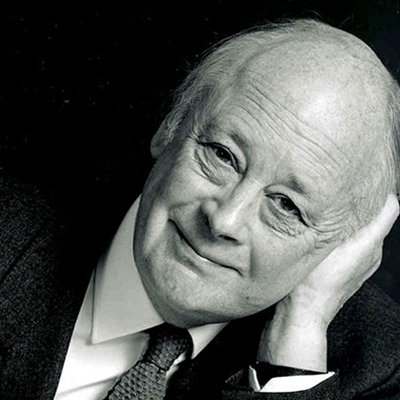Steve Morris recalls interviewing Charles Handy and reflects on one of his books
I once spent a very pleasant day with Charles Handy at his home in Wimbledon, London. In fact, the day just flew past as we talked about organizations and life and goodness knows what else. I was interviewing him for one of the early incarnations of Amazon. The aim was to come up with a profile of perhaps the greatest living management thinker we had. I suppose Peter Drucker might be another candidate, but there was something almost indescribably attractive about both Handy’s persona and method. But there was something odd about the whole affair, and it may just have been my poor concentration levels. When I got home with the tapes and notes assembled, I found I didn’t have a great deal to write about. Or maybe, more to the point, I had too much to write about and didn’t know where to start or what to include. Maybe that’s the point about Charles Handy, there is a helter-skelter flow of ideas and observations and prophecies.
Handy is an Irish academic who has spent most of his life living in the UK. He has sold more than a million books and has shaped the thinking of many managers and other academics. His books are very approachable and full of stories and observations and words of wisdom. I think it no coincidence that he is a Christian because he uses that storytelling way of doing narratives that’s at the heart of The Christian faith.
The Age of Unreason is one of Handy’s greatest books. It’s interesting because it is a prediction about what the future may and will hold. Handy himself gives it a risk warning. He writes that, ‘we are entering an age of unreason, a time when the future, in so many areas, is to be shaped by us and for us; a time when the only prediction that will hold true is that no prediction will hold true; a time therefore for bold imagining in private life as well as public; for thinking the unlikely and doing the unreasonable.’ It is seductive isn’t it. A license to be creative and think oddly because we live in odd times. And how true and relevant for an age of the entrepreneur.
Handy tells us to ditch the Whig theory of progress and history. We are not on a gentle upward curve where the future is substantially the same as the past, each step representing measurable progress on the previous one. Instead, we need to strap ourselves in major and unpredictable times due to demographics and technology.
Of course, Handy is right on the money but the thing is that he was writing 25 years too early. The world he described and the crazy unreason that seems to go with it are much more the case now than they were then. Who would have believed that there would be a full-scale assault on the idea of truth and who would have thought that reason would be seen as a poor substitute for feelings and experience? We are in the new Romantic Age.
Handy dissects a moment in history, 1989. He says that we’re about to go into a period of unprecedented nonlinear change. His argument is that not only that society will need to be different but so will we. All the old rules have been torn up, rules about what makes a career, a place of work and an education. We’re in the age of portfolio life where we mix and match different skills. We are entering an age where what seemed impossible becomes possible. Think of the speed of technological processing and change.
To make predictions, as Handy does, is a very dangerous business and some of them look rather funny. But then we have the advantage of having lived through the period Handy could only dream about. He pictures a world where there are expert GPs working online, where smart cards replace cash, where new drugs will be developed to fight AIDS and what he calls cordless telephones will give everyone the chance to work away from the office!
Reading all these years later the Age of Unreason is both brilliant and odd. I think that strangeness comes from the different tones at work in the book. In one moment, we are hearing about a conversation with a colleague and the next we have something much more academic. It creates a narrative tension. Yet, he is full of ideas and prophecies. Just one example showing how he was ahead of his time – he develops the idea of the Shamrock organisation (made up of full-time core people, hired specialists and freelancers (outsourcing non-core elements) and other seasonal temporary workers). Handy also makes the valuable observation that the person we should invest in most is ourselves – in our own education for life – and that we shouldn’t rely on anyone else to open doors or make things happen for us. He really is full of insight.
In this age of post-truth and shaky foundations – in the age of unreason, I find myself no longer able to believe in the persona of the management guru and I am not alone. Could we, would we, ever be able to construct a persona like Handy’s again? Is there any room for the sage? Who would listen? Why is his truth any better than another person’s? We have left the age of the patricians. Maybe we are entering the world where poets and film makers and novelists might be able to give us wisdom about the way of the world and the human condition? However you look at it, creativity and innovation lie at the heart of thinking about the future.
Back in the day when I read The Age of Unreason for the first time, I felt that Handy had all the answers. These days I don’t think that’s true, but I do miss thinkers like this helping me to wonder and dream about what the future may hold. In our post-Covid world where will we find our wisdom? Where will we find our wisdom?
Thank God for Charles Handy.
 Steve Morris is the Vicar of St Cuthbert’s, North Wembly, an entrepreneur, and the author of several publications for CEME and beyond including Enterprise and Entrepreneurship, and Lessons from Family Business, both available from the CEME office. He is married, with two children and has three cats. His latest writing, Our Precious Lives, dealing with the power of story-telling is available here.
Steve Morris is the Vicar of St Cuthbert’s, North Wembly, an entrepreneur, and the author of several publications for CEME and beyond including Enterprise and Entrepreneurship, and Lessons from Family Business, both available from the CEME office. He is married, with two children and has three cats. His latest writing, Our Precious Lives, dealing with the power of story-telling is available here.

